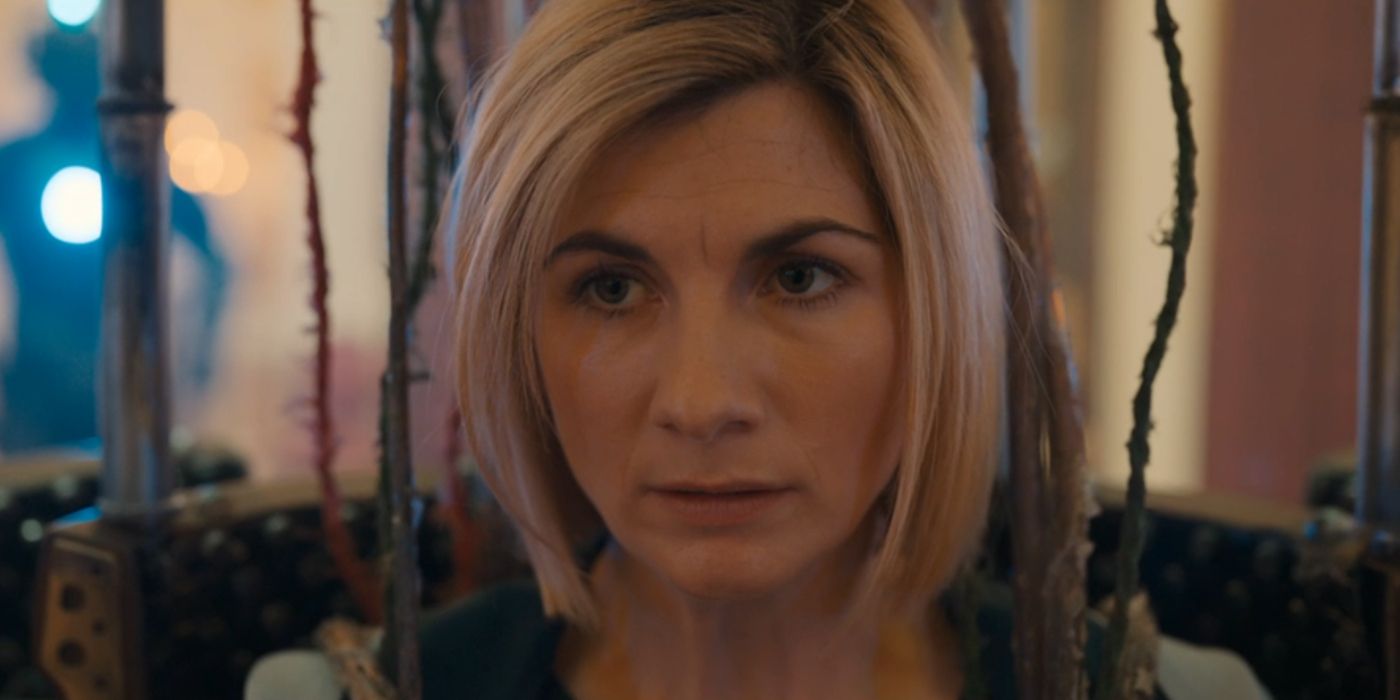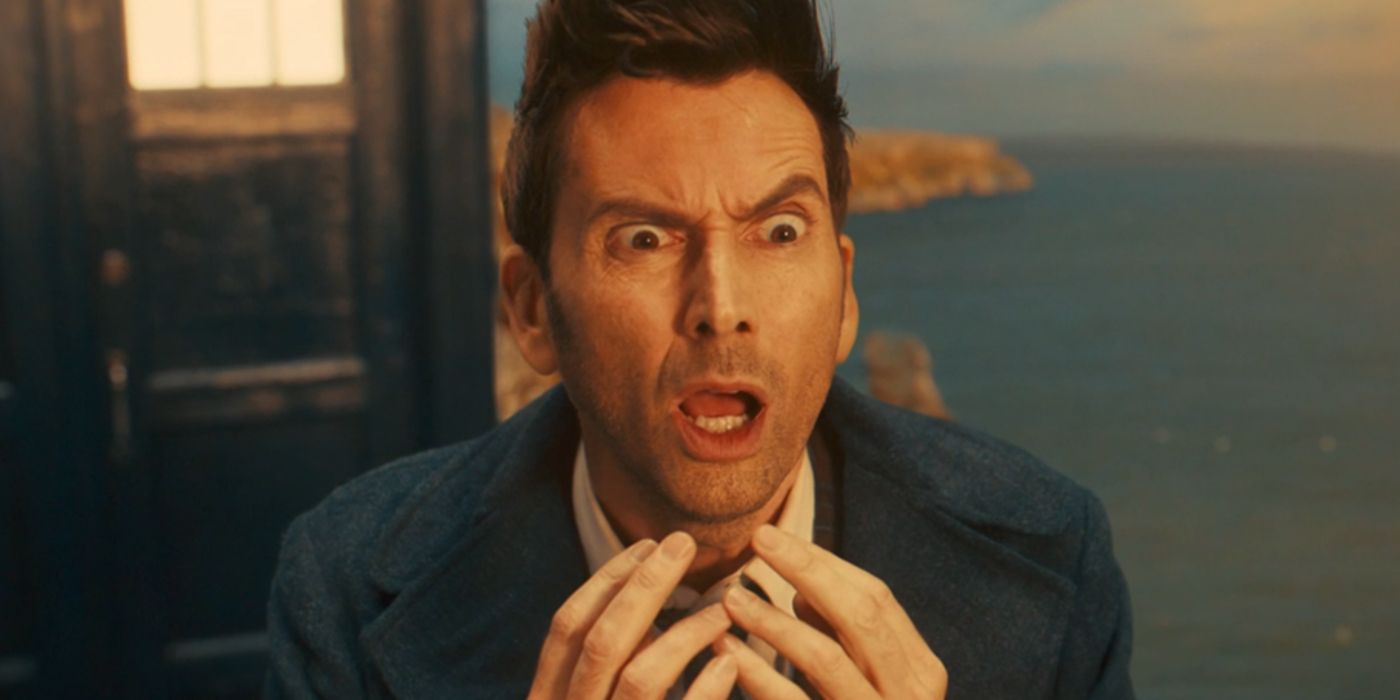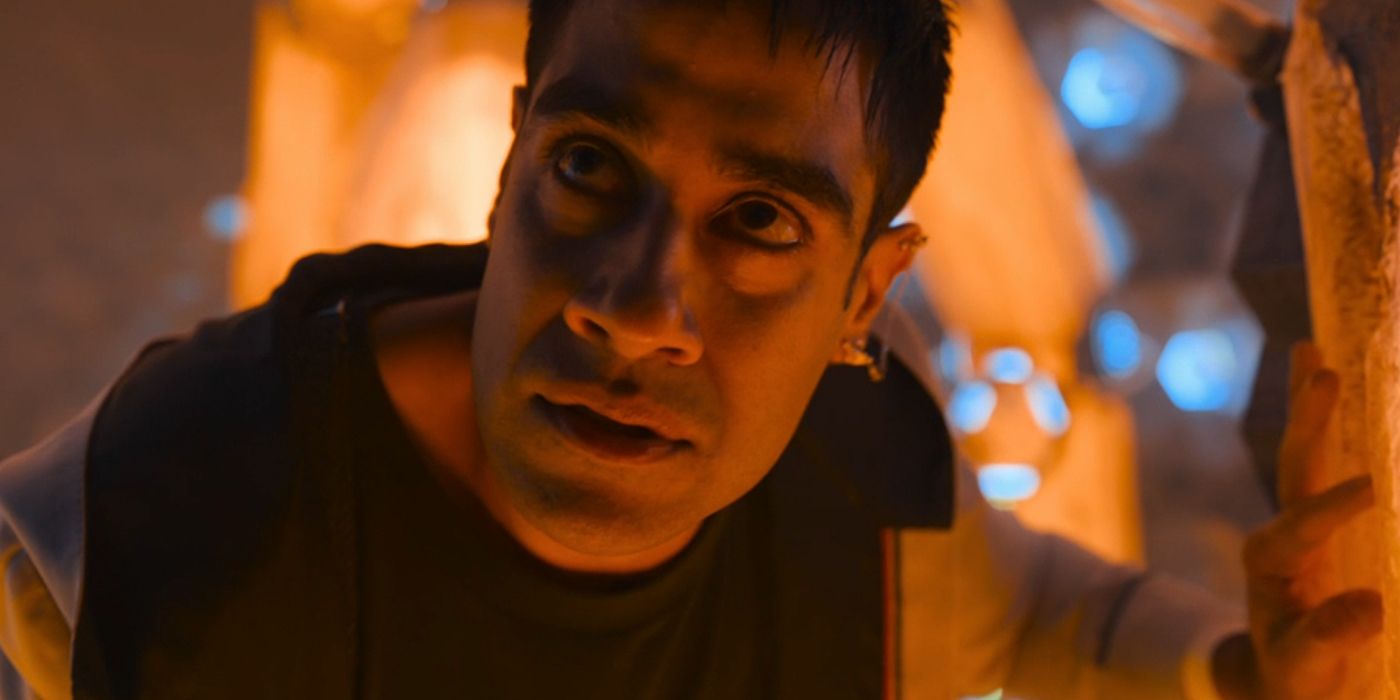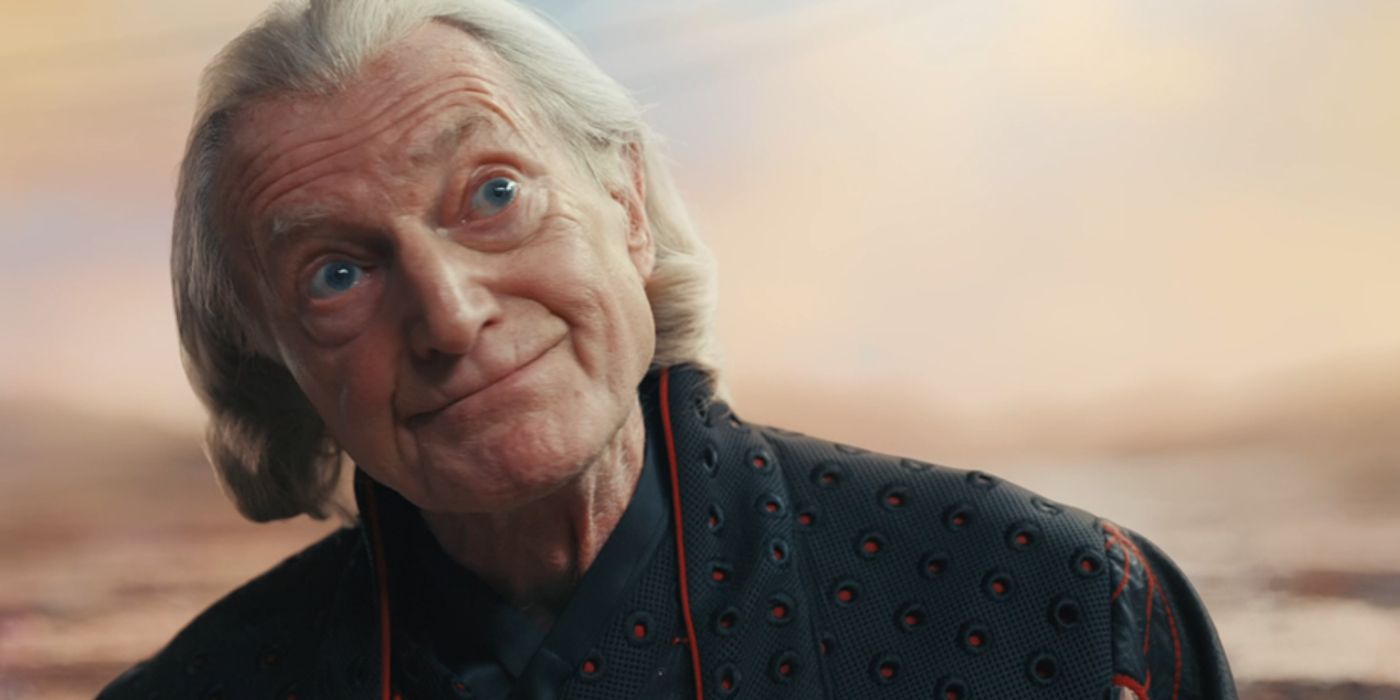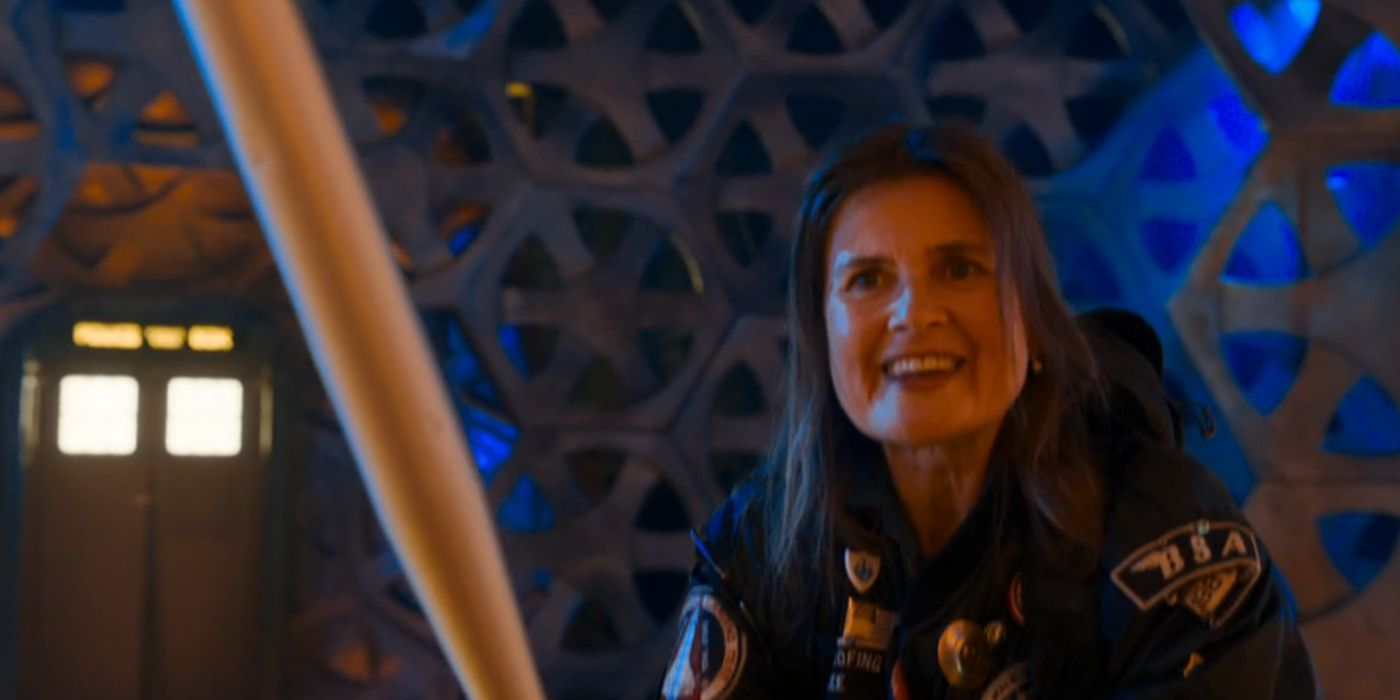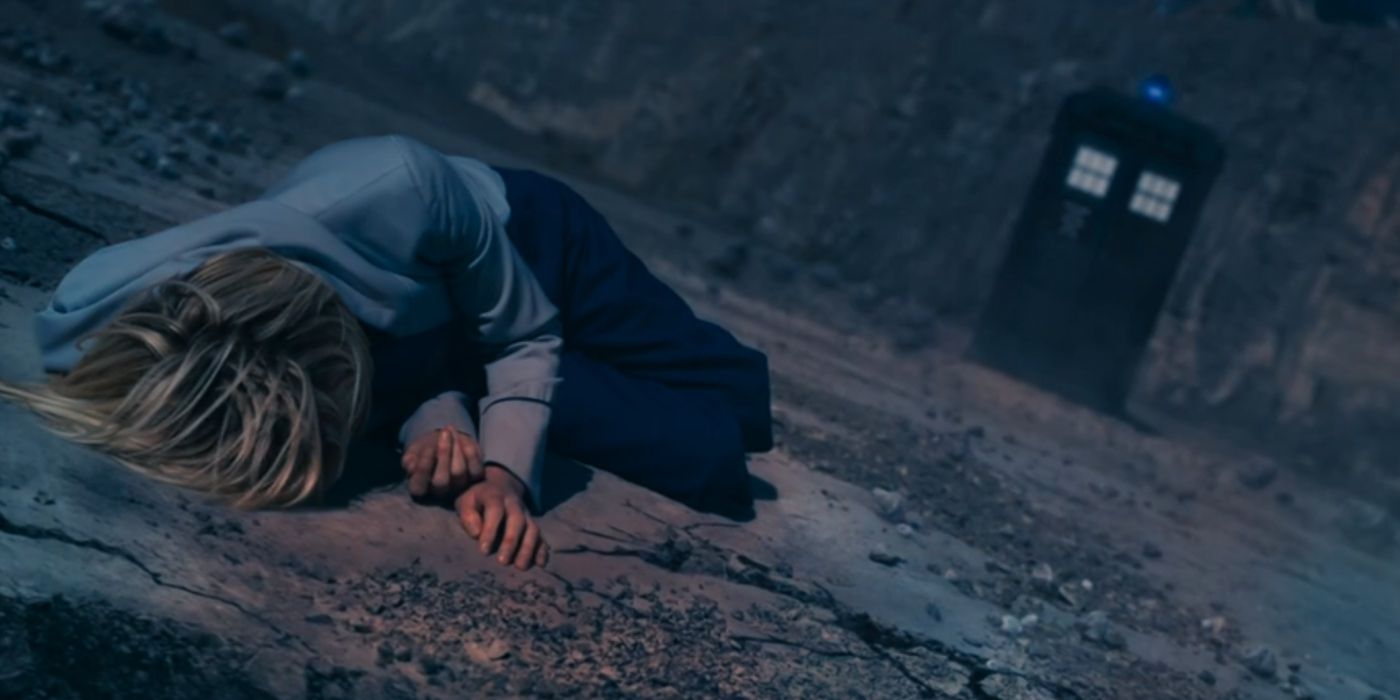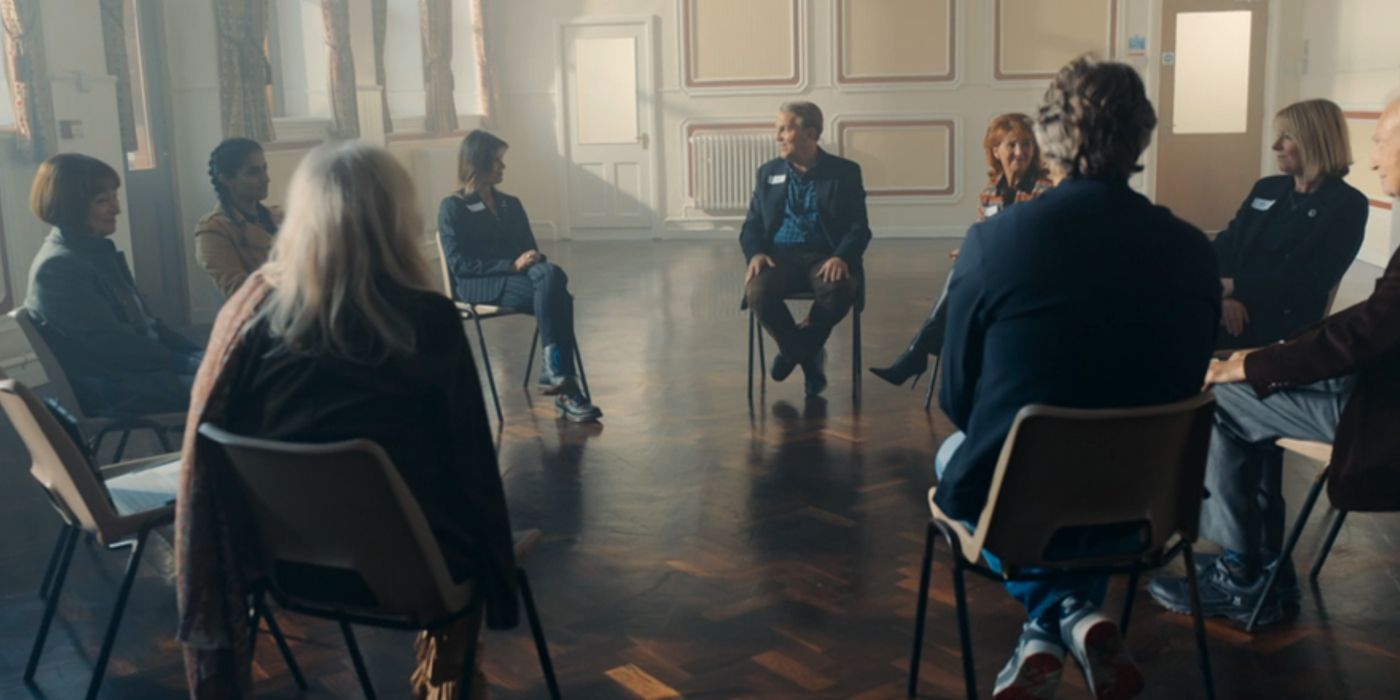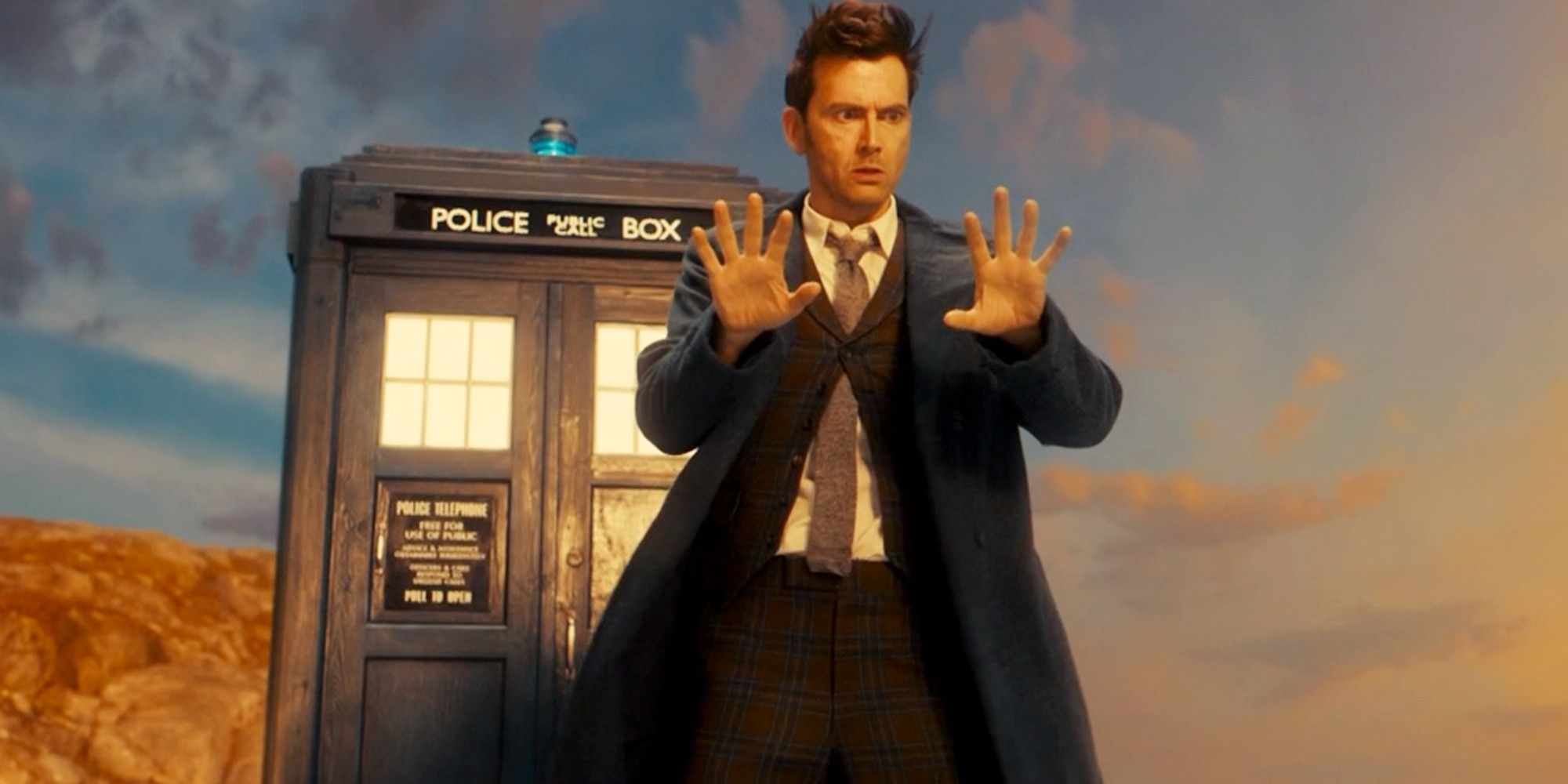Warning! SPOILERS for the Doctor Who Centenary Special, The Power of the Doctor.The Doctor Who Centenary Special, The Power of the Doctor, brought a triumphant close to one of the most controversial eras in the show's 60-year history. Change has been baked into Doctor Who since 1966, when William Hartnell's First Doctor regenerated for the first time. 59 years later, Jodie Whittaker's tenure as the Thirteenth Doctor has come to an explosive end in a dramatic story in which she faced off against all her most iconic foes.
The Power of the Doctor released as part of the BBC's Centenary celebrations, and departing showrunner Chris Chibnall decided to make the 90-minute special a love letter to the BBC's flagship science fiction TV series. Chibnall is an old-school fan of Doctor Who. In the past he's been criticized for leaning too heavily on nostalgia, but in this case he balanced his love of the past with drama on an epic scale. It helped that the stars turned out some of their best performances, with Jodie Whittaker demonstrating her skill, Sacha Dhawan's Master serving as her perfect foil, and Mandip Gill's Yaz getting a chance to shine at last. Naturally, the most exciting twist in Doctor Who was Whittaker's regeneration scene.
Jodie Whittaker's Thirteenth Doctor Regenerates Into David Tennant
Jodie Whittaker regenerated into returning Doctor Who star David Tennant. This is the first time in Doctor Who's history that viewers have watched a regeneration episode with no idea who comes next. Ncuti Gatwa has been cast as the next Doctor, but David Tennant is returning for the show's 60th anniversary celebrations in 2023, so nobody quite knew what to expect. In the end, Whittaker transformed into a familiar face, much to the Doctor's own confusion. Entertainingly, the new Doctor's first words were surprise as he recognized his teeth - a homage to Tennant's debut as the Tenth Doctor, where he amused viewers by commenting on his teeth. It was clear this was the last thing the Doctor had expected to happen.
Every Doctor Who regeneration is typically caused by trauma, meaning it is possible for them to go wrong. To date, the most traumatic was Fifth Doctor Peter Davison's regeneration into Sixth Doctor Colin Baker, which was caused by a case of poisoning and brought the Doctor closer to actual death than any other regeneration. The result was an incarnation who started out dangerously unstable, even trying to throttle his companion in his debut episode. Whittaker's regeneration in The Power of the Doctor is even more traumatic, because she's experienced the Master's most dastardly plan to date.
The Master Had Attempted To Steal The Doctor's Regenerations
The Chibnall era has transformed the Doctor, revealing she is not a Time Lord at all. Rather, she is the Timeless Child, a billion-year-old being with possibly infinite lives who became the base genetic template for the entire Time Lord race. The Master hates the Timeless Child even more than he does the Doctor, because he has always longed to prove himself the Doctor's superior; the Timeless Child retcon means he can never achieve that goal, because in truth he would not even exist if not for the Doctor. He has a limited regeneration count, like any other Time Lord, but there appears to be no limit to the number of times the Doctor can regenerate.
Coveting the Doctor's infinite lives, the Master used stolen Time Lord technology to force the Doctor to regenerate. This has been seen before - the Time Lords forced a regeneration when they exiled the Doctor to Earth in the 1969 story The War Games, which saw Patrick Troughton's Second Doctor transform into Jon Pertwee's Third Doctor. But the Master added another twist in The Power of the Doctor, using the Doctor's mid-regeneration vulnerability to transport his consciousness into the Doctor's body. The Doctor essentially regenerated into the Master, with the Master gaining the Doctor's infinite regenerations.
The Doctor's Consciousness Resisted The Master's Possession
Jodie Whittaker's Thirteenth Doctor resisted the process, however, leaving her consciousness stranded in a sort of "inbetween" place - a psychic realm where she could interact with avatars of her own subconscious that took on the form of past Doctors. This is an idea lifted from Virgin Publishing's New Adventures range, and it presented an opportunity for a host of delightful cameos: David Bradley reprised the role of the First Doctor (which he played alongside Peter Capaldi in the regeneration episode Twice Upon A Time), and he was joined by Colin Baker, (the Sixth Doctor), Peter Davison (the Fifth Doctor), Paul McGann (the Eighth Doctor), and Sylvester McCoy (the Seventh Doctor). The inclusion of McGann was particularly pleasing, given he has never played the part of the Doctor in the TV series itself - only in the failed 1996 TV movie.
The Power Of The Doctor Is Not Regeneration At All
The title of the Doctor Who Centenary Special, The Power of the Doctor, had naturally seemed to set up a story that was all about regeneration. This turned to be sleight of hand on Chibnall's part, however, with the story revealing the Doctor's true power does not lie in infinite regenerations at all. Rather, it lies in their capacity to inspire others. The Doctor's greatest power is their ability to make friends, to build a family around them, and the Doctor's salvation lay in her companions. This included returning Fourth and Fifth Doctor companion Tegan Jovanka (Janet Fielding), Seventh Doctor companion Ace (Sophie Aldred), and even Kate Stewart of UNIT (Jemma Redgrave). Appropriately enough, they were soon joined by a past Thirteenth Doctor companion, Graham O'Brien (Bradley Walsh), as well as Vinder (Jacob Anderson) from Doctor Who: Flux.
The Master had set up a Dalek and Cyberman attack on Earth, largely as a sideshow to his main plan to steal the Doctor's regenerations; the Doctor's "fam" arrayed itself against the Master, working to defeat him. Yaz and Vinder, meanwhile, focused on stopping the Master himself; they tricked him into returning to the chamber where he had forced the Doctor's regeneration, using the regenerative power of his CyberMasters as a power source to reverse the process.
The Master Dealt The Doctor A Fatal Blow
The Master had orchestrated multiple planet-threatening events at once, involving both a Cyberman planet and a Dalek attempt to trigger volcanic eruptions across the Earth - ideas lifted from 1966's The Tenth Planet and 1964's The Dalek Invasion of Earth. The Doctor used the Cyber-planet's conversion system to defeat the Daleks, however, converting magma and lava into steel. She then showed the creature powering the Cyber-planet how it could free itself, be destroying the artificial world in which it had been imprisoned. Unfortunately, the Doctor had reckoned without the Master finding a way to transport himself back into his own TARDIS.
Unwilling to accept this defeat, the Master manipulated the creature, so its energies would strike the Doctor - even if doing so would place himself in the line of fire as well. The scene was evocative of 1989's Survival, in which the Doctor and the Master confronted one another on the dying planet of the Cheetah People, and the Doctor recognized their battle would lead to mutual destruction. Sacha Dhawan's Master was willing to choose this, preferring it to defeat. The Doctor was critically injured, and - after being rescued by Yaz - knew her time was at an end. It is likely the Master, too, suffered a grievous injury that will lead to a regeneration.
The Doctor's Companions Form A Support Group
Ultimately deciding to face her regeneration by herself, the Doctor left Yaz back on Earth - but it didn't take Yaz long to learn she was not alone. Graham had created a support group of former companions, the friends and family of the Doctor, the ones whose lives had been transformed by the Doctor's true power of friendship. This was another delightful opportunity for the Doctor Who Centenary Special to celebrate the show's past, as it brought back some more classic Doctor Who companions: Bonnie Langford's Mel (companion of the Sixth and Seventh Doctors) and Katy Manning's Jo Grant. William Russell even returned as Ian Chesterton, the schoolteacher who stumbled into the TARDIS back in 1963's An Unearthly Child, the first episode of Doctor Who.
The Doctor's Clothes Changed During His Regeneration - Indicating Something Is Very Wrong
The Doctor's companions gathered in her honor, but meanwhile the Doctor faced her regeneration alone. She transformed into David Tennant once again, a twist that left the new Doctor reeling in shock. Even more surprising, though, was the fact the Doctor's clothes changed as well; a Time Lord's clothing does not change when they regenerate, so this hints something else has interfered with the process. The upcoming Doctor Who 60th anniversary specials will feature Neil Patrick Harris as the Celestial Toymaker, a classic villain who can rewrite reality itself, so he seems to be the most likely culprit - leaving the Doctor's future in doubt, as this regeneration goes badly wrong.

